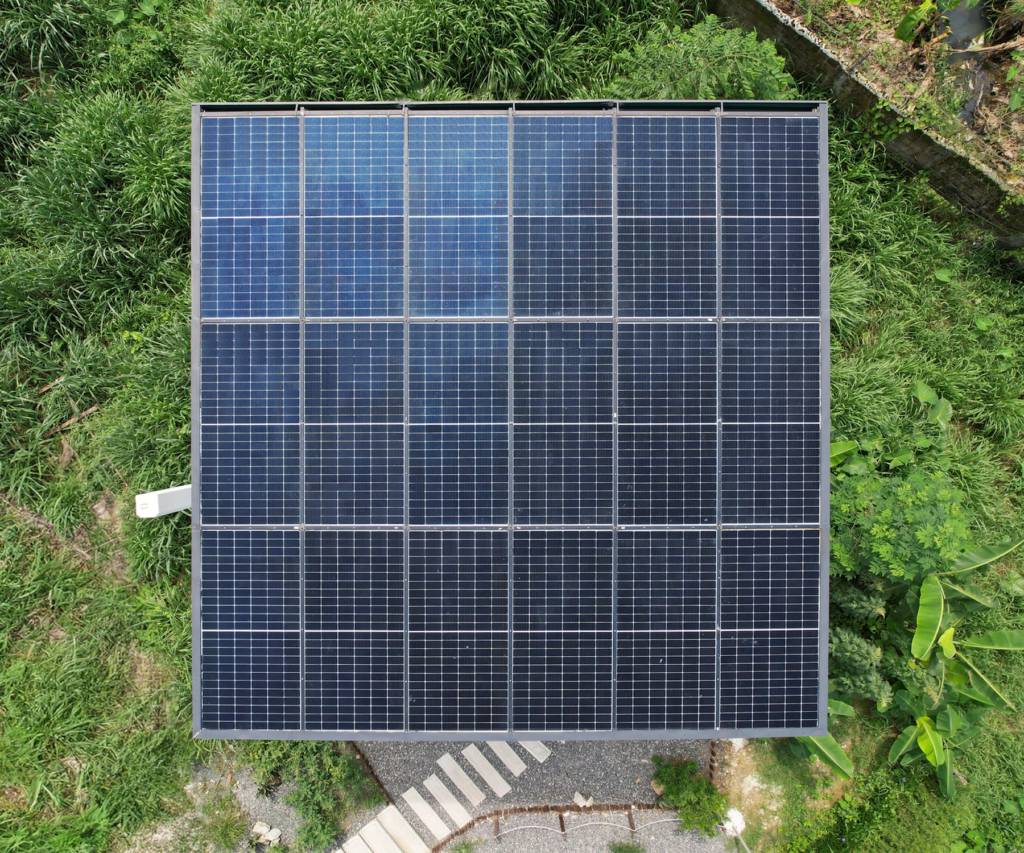Embark on a journey through the revitalization of Manila with the Pasig River Esplanade, as it champions sustainability, eco-friendly materials, and green urban living for a brighter Philippine capital.
The Pasig River Esplanade. PHOTO: Philippine News Agency
In the heart of Manila, a transformation unfolds along the banks of a river that has witnessed centuries of history. The Pasig River, once burdened by decline, is now the canvas for a groundbreaking project: The Pasig River Esplanade. This initiative not only reimagines the urban landscape but also breathes new life into the city, proving that the path to a sustainable future can indeed rise from the waters of renewal.
Envisioning a Greener Future Along the Historic Pasig
The narrative of the Pasig River has been etched deeply into Manila’s identity, tracing its ebbs and flows from the days of galleons to the presses of industrial growth. Sadly, this historic artery had languished, choked by the detritus of urban expansion.
Yet, today, a revolutionary chapter is being written along its banks, heralded by the creation of the Pasig River Esplanade. This project not only signifies a return to the river’s glorious days but also establishes a pioneering model for integrating sustainable construction within the urban fabric of Manila.
Embarking on this ambitious journey required envisioning a space where the community could reconnect with the river’s once-forgotten waters. The esplanade has since emerged as a testament to what can be achieved when environmental sustainability is not just a goal but the foundation of urban redevelopment. It showcases the powerful synergy between restoring ecological balance and enhancing urban livability, all while preserving the river’s rich heritage.
In the Beginning: Shaping the Vision of the Esplanade
The genesis of the Pasig River Esplanade was rooted in a collective vision to heal and revitalize the waterway, transforming it into a vibrant artery of life at the heart of Manila. Planners, architects, environmentalists, and the community converged on a shared dream: to craft spaces that encourage interaction, recreation, and contemplation along the riverbanks. Renowned architect and city planner Paulo Alcazaren has also been tapped as a consultant for the designs of the rest of the Pasig river’s rehabilitation project.
The vision for the project was built on principles of sustainability and inclusivity, mirroring the diverse tapestry of Manila’s urban landscape. It aimed to stitch together ruptured connections between the city’s spaces and its people, offering a refuge in the bustling metropolis. Through careful planning and innovative design, the esplanade was poised to become a beacon of sustainable urban living, blending modernity with nature’s resilience.
Crafting the Green Ribbon: The Esplanade’s Blueprint
At its core, the design of the Pasig River Esplanade was an exhibition of daring and imagination, marrying functionality with sustainability. Architects and designers focused on a meticulous process of selecting sustainable materials and technologies that could withstand the tropical climate while minimizing environmental impact.
The blueprint envisioned a pathway not only traversing the riverbanks but also weaving together ecosystems and communities through green architecture. These plans also tackled the inherent challenges of urban renewal, from mitigating the impacts of construction on the river’s ecology to ensuring the long-term viability of the esplanade.
Innovations such as stormwater management systems and energy-efficient lighting were integrated, reflecting a holistic approach to building a sustainable urban landmark. Through trial and perseverance, the development of the esplanade embodied the essence of sustainable construction, setting a precedent for future projects.
The Esplanade’s Symphony with the River’s Revival
The Pasig River Esplanade’s creation was also in harmony with broader efforts to breathe life back into the river, serving as a cornerstone in the ambitious endeavor of river rehabilitation. By integrating green infrastructure and bioengineering techniques, the project contributed to improving water quality and restoring natural habitats along the urban waterway.
This symbiotic relationship between the esplanade and the river’s health demonstrated the exciting potential of sustainable urban development flourishing alongside environmental restoration. Community clean-up drives and the installation of natural filtration systems underscored the project’s commitment to fostering an eco-conscious mindset, ushering in a new chapter of ecological stewardship within the heart of the city.
The Esplanade: A Cradle for Community and Prosperity
PHOTO: Philippine News Agency
Beyond its environmental ambitions, the Pasig River Esplanade likewise redefined the essence of community spaces in urban settings. It emerged as a crucible where culture, nature, and leisure intersect, catalyzing social connectivity and well-being among Manila’s diverse populace.
This revitalization of the riverbanks spurred economic vitality, invigorating local businesses and attracting new opportunities to the area. The esplanade thus became a linchpin in the city’s urban regeneration, illustrating how sustainable design and thoughtful planning can rejuvenate not just physical spaces but also the social and economic fabric of communities.
Seeds of Sustainability: Public Engagement and Education
The transformative power of the project was moreover magnified by its embrace of community engagement and environmental education. Through workshops, interactive exhibits, and community programs, the project became a dynamic platform for propagating sustainability awareness.
By nurturing a culture of care and respect for nature, the esplanade played a critical role in cultivating environmental literacy among Manila’s citizens. It underscored the importance of collective action in tackling environmental challenges, fostering a sense of ownership and pride in the community’s achievements.
Overcoming Hurdles in Crafting a Green Corridor
Nevertheless, the journey to realize the Pasig River Esplanade was fraught with challenges, from logistical hurdles to the complexities of integrating the project within the urban ecosystem. Navigating the intricate web of government regulations, securing sustainable funding sources, and engaging a diverse array of stakeholders required tenacity and innovative problem-solving.
The project team leveraged technology, green financing models, and collaborative partnerships to overcome these obstacles, demonstrating resilience and adaptability in the face of adversity. Through steadfast commitment and strategic foresight, the esplanade emerged as a showcase of how sustainable development initiatives can flourish, transforming seemingly insurmountable barriers into stepping stones toward success.
The Future is Green: Esplanade Horizons
As the Pasig River Esplanade continues to evolve, it heralds a green renaissance for Manila’s urban landscape. Plans to expand the esplanade aim to extend its reach, creating an interconnected network of green corridors and public spaces that knit the fabric of the city together.
This vision of a greener, more resilient Manila is suddenly within grasp, inspired by the success of the esplanade and fueled by a collective ambition for sustainable urban living. It stands as a beacon of hope, illuminating a path toward a future where urban environments and natural ecosystems coexist in harmony.
Take the Stepping Stones to Urban Renaissance
The Pasig River Esplanade is a testament to the transformative power of sustainable construction and visionary urban planning. It weaves together tales of resilience, community, and innovation into a vibrant tapestry of urban renewal. This project goes beyond mere aesthetic enhancement—it redefines the relationship between society and the river, forging a sustainable legacy for generations to come.
As a beacon of modern sustainability practices, the esplanade inspires cities worldwide to reconsider their roots and relationships with their natural landscapes. It challenges us to dream big and act boldly in the pursuit of a sustainable, inclusive, and vibrant urban future.
If you have a project in mind, we would love to hear about it and explore ways to work together. You may contact us here.
If you’re interested in further exploration of sustainability initiatives in Manila, check out another article that provides additional insights. Read: Exploring Quezon City’s Sustainability Initiatives.
Resources:
-
Alie Sicat. Pasig River: A Historical Waterway of Cultural Significance. Retrieved from https://mirror.pia.gov.ph/features/2023/07/31/pasig-river-a-historical-waterway-of-cultural-significance#:~:text=The%20Pasig%20River%20holds%20a,Bay%20and%20Laguna%20de%20Bay.
-
ABS-CBN News. Pasig River Esplanade. Retrieved from https://news.abs-cbn.com/lifestyle/2024/2/7/in-photos-pasig-river-esplanade-is-manila-s-latest-ig-worthy-spot-1728
-
Princess Catherine Pabellano. Green Architecture: A Sustainable Solution to the Construction Sector’s Environmental Challenges. Retrieved from https://billionbricks.org/updates/green-architecture-a-sustainable-solution-to-the-construction-sectors-environmental-challenges?rq=green%20architecture
-
Utilities One. Enhancing Energy Performance through Rainwater Management Systems in High-Rise Buildings. Retrieved from https://utilitiesone.com/enhancing-energy-performance-through-rainwater-management-systems-in-high-rise-buildings
-
Summer Sanares. Pasig River cleanup breakthrough: 1.3 million tons of waste removed to ease pollution and flooding. Retrieved from https://www.goodnewspilipinas.com/pasig-river-cleanup-breakthrough-1-3-million-tons-of-waste-removed-to-ease-pollution-and-flooding/#:~:text=A%20breakthrough%20for%20Philippine%20environmental,of%20severe%20flooding%20in%20nearby
-
Mia Rodriguez. The Pasig River Esplanade Is Finally Here: Here’s What to Know. Retrieved from https://www.spot.ph/newsfeatures/mobility/107814/pasig-river-esplanade-project-a4362-20240122
-
Princess Catherine Pabellano. Role of Net Zero Architecture in Sustainable Urban Planning. Retrieved from https://billionbricks.org/updates/role-of-net-zero-architecture-in-sustainable-urban-planning?rq=urban






